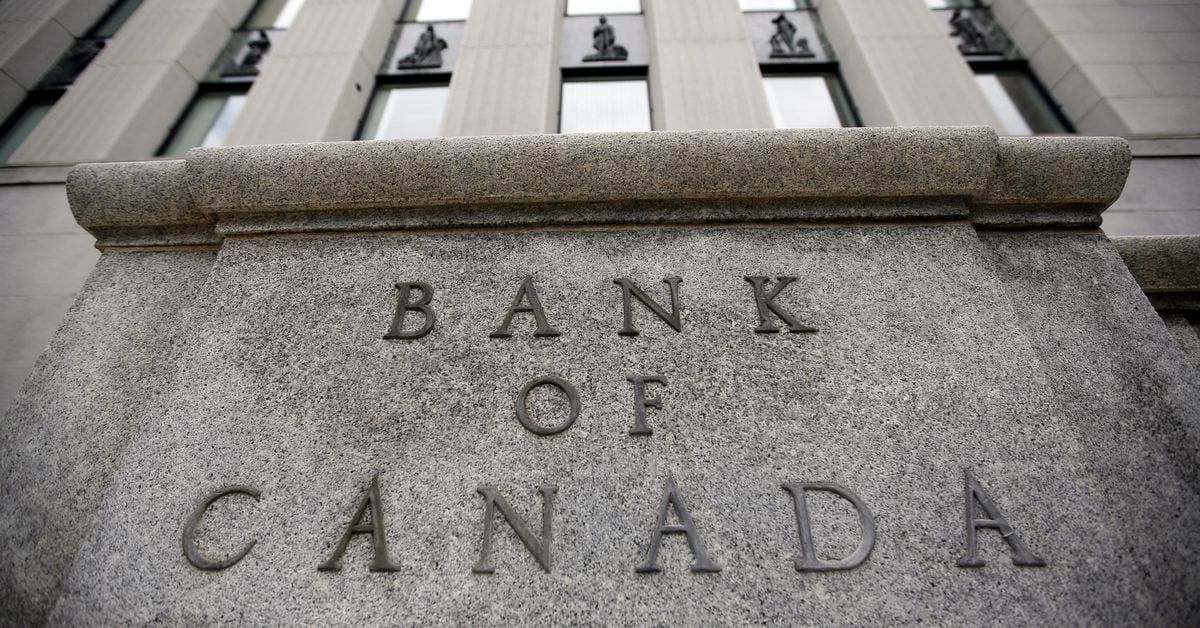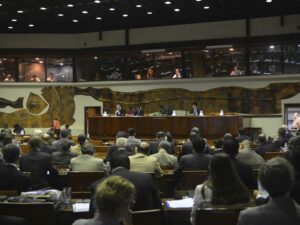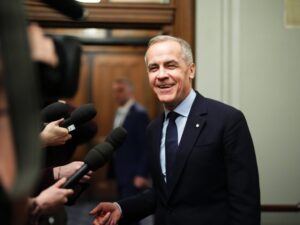
The Bank of Canada on Friday made clear that interest rates were not coming down any time soon, putting it on a divergent path from the U.S. Federal Reserve, which said this week that easing could be on the timetable.
The Canadian central bank raised rates by a quarter point in both June and July to a 22-year high and has left them on hold in the three policy-setting meetings since. Inflation slowed to 3.1% in October, down from a peak of more than 8% last year, but it has remained above the bank’s 2% target for 31 months.
“The Fed is going to do what they need to do. We’re going to focus on what needs to be done here in Canada,” Governor Tiff Macklem told a business audience in Toronto after a speech.
“We have not started having that discussion (about cutting rates), because it’s too early to have that discussion. We’re still discussing whether we raise interest rates enough and how long they need to stay where they are.”
U.S. central bank chief Jerome Powell on Wednesday said the historic tightening of monetary policy is likely over, with a discussion of cuts in borrowing costs coming into view.
Royce Mendes, head of macro strategy at Desjardins Group, noted the Bank of Canada would not release its updated economic forecasts until Jan 24.
“It’s likely Canadian policymakers will wait until then to make any major changes in communications. We’re, therefore, not too surprised Macklem isn’t moving in lockstep with Powell,” he said in a note.
In his speech, Macklem expressed increasing optimism it could bring inflation back down to target but warned Canadians the next few quarters would be difficult as high interest rates restrict the economy.
“The 2% inflation target is now in sight. And while we’re not there yet, the conditions increasingly appear to be in place to get us there,” he said.
Macklem reiterated it was still too early to talk about rate cuts and that the bank would only consider such a move once it became clear inflation was on a sustained downward track.
The European Central Bank this week said policy easing was not even brought up in a two-day meeting, the Bank of England said rates would remain high for “an extended period”.
Money markets expect the bank to begin easing as soon as April and for rates to fall 125 basis points in 2024.0#BOCWATCH
The Bank of Canada says inflation should hit the 2% target by end-2025 but Macklem said future declines were likely to be gradual, given there would be “some push and pull” on inflation and “bumps along the way”.
In particular, a housing shortage is putting upward pressure on shelter price inflation, helping counter a slowing economy.
“I expect 2024 to be a year of transition … with the cost of living still increasing too quickly, and with growth subdued, the next two to three quarters will be difficult for many,” said Macklem, adding the jobless rate was likely to rise further.
Macklem said the period of weakness would pave the way to a more balanced economy, with growth and jobs picking up later next year.
The central bank held its key overnight rate at 5% on Dec 6 and left the door open to another hike, saying it was still concerned about inflation while acknowledging an economic slowdown and a general easing of prices.





